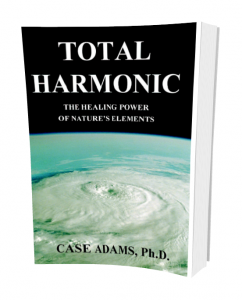Natural Settings Lower Crime Rates
Natural settings typically consist of lots of trees, shrubs and grass. These settings tend to help us relax. Now research finds natural settings actually reduce crime when they are added to urban areas.
In this article
Study on crime in Philadelphia
Researchers from Temple University have determined that areas with more trees experience reduced rates of violent crime. This confirms other studies that have found natural settings produce calmness.
The research, published in the Journal Landscape and Urban Planning, analyzed rates of assaults, robberies, burglaries, and thefts together with levels of trees and other vegetation in that region in Philadelphia, PA. Data was gather amongst other means, using satellite imagery to determine regions with more vegetation.
The researchers found that areas with greater levels of trees, shrubs, and grass had reduced rates of crime. The greatest levels reduced crime appear in rates of robberies and assaults according to the research.
The research was led by Dr. Jeremy Mennis, an associate professor of geography and urban studies at Temple University:
“There is a longstanding principle, particularly in urban planning, that you don’t want a high level of vegetation, because it abets crime by either shielding the criminal activity or allowing the criminal to escape,” Dr. Mennis said. “Well-maintained greenery, however, can have a suppressive effect on crime.”
The researchers hypothesized that green areas promote social interaction and supervision, but also that greenery produces a calming effect, reducing violent urges.
The study authors recommended city planning that increases vegetation areas, especially in higher crime areas.
Similar results found in Baltimore
A similar study from last year by researchers from the University of Vermont found the same effect in Baltimore when studying tree canopies. In this study, a 10% increase in tree canopy was associated with a 12% decrease in crime. The reduction in crime included shootings and robberies.
The effect of crime reduction in the Baltimore study was greater in public areas than on private land. Still, private property vegetation also resulted in significantly decreased crime rates.
Study from Philadelphia greens lots
Last year researchers from the Perelman School of Medicine at the University of Pennsylvania took the research a step further: They randomly divided and studied two groups of vacant city lots in Philadelphia. Half of the lots were subjected to “greening” – cleaning the lots, planting grasses and trees and building a wood fence around them. The others were left vacant with no greening.
After analyzing crime rates and interviewing those living close to the lots, the researchers found that violent crime and shootings occurred less around the greened lots. Interviews with neighbors of each type found that the greened lots resulted in their feeling “significantly safer” around the greened lots.
The researchers concluded: “In this study, greening was associated with reductions in certain gun crimes and improvements in residents’ perceptions of safety.”
Living among nature also increases calmness and boosts focus according to other studies.
REFERENCES:
Wolfe MK, Mennis J. Does vegetation encourage or suppress urban crime? Evidence from Philadelphia, PA. Landscape and Urban Planning. 2012 Dec. 108(2-4):112-122.
Troy A, Grover JM, O’Neil-Dunne JO. The relationship between tree canopy and crime rates across an urban–rural gradient in the greater Baltimore region. Landscape and Urban Planning. 2012 June: 106(3):262-270.
Garvin EC, Cannuscio CC, Branas CC. Greening vacant lots to reduce violent crime: a randomised controlled trial. Inj Prev. 2012 Aug 7.
Adams C. Total Harmonic: The Healing Power of Nature’s Elements. Logical Books, 2009.
















